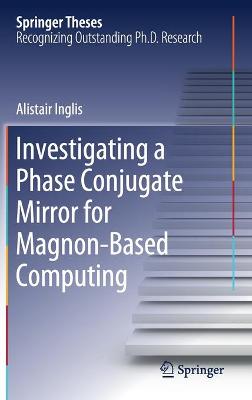Springer Theses
1 total work
Investigating a Phase Conjugate Mirror for Magnon-Based Computing
by Alistair Inglis
Published 9 August 2020
This work provides a convincing motivation for and introduction to magnon-based computing. The challenges faced by the conventional semiconductor-transistor-based computing industry are contrasted with the many exciting avenues for developing spin waves (or magnons) as a complementary technology wherein information can be encoded, transmitted, and operated upon: essential ingredients for any computing paradigm.
From this general foundation, one particular operation is examined: phase conjugation via four-wave-mixing (FWM). The author constructs an original theory describing the generation of a phase conjugate mirror with the remarkable property that any incident spin wave will be reflected back along the same direction of travel. After establishing a theoretical framework, the careful design of the experiment is presented, followed by the demonstration of a magnetic phase conjugate mirror using four-wave mixing for the first time.
The thesis concludes with an investigation into the unexpected fractal behaviour observed arising from the phase conjugate mirror – a result that is testament to the richness and vibrancy of these highly nonlinear spin wave systems.
From this general foundation, one particular operation is examined: phase conjugation via four-wave-mixing (FWM). The author constructs an original theory describing the generation of a phase conjugate mirror with the remarkable property that any incident spin wave will be reflected back along the same direction of travel. After establishing a theoretical framework, the careful design of the experiment is presented, followed by the demonstration of a magnetic phase conjugate mirror using four-wave mixing for the first time.
The thesis concludes with an investigation into the unexpected fractal behaviour observed arising from the phase conjugate mirror – a result that is testament to the richness and vibrancy of these highly nonlinear spin wave systems.
